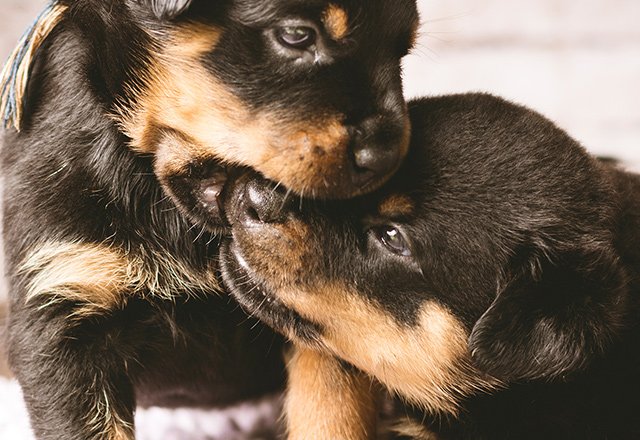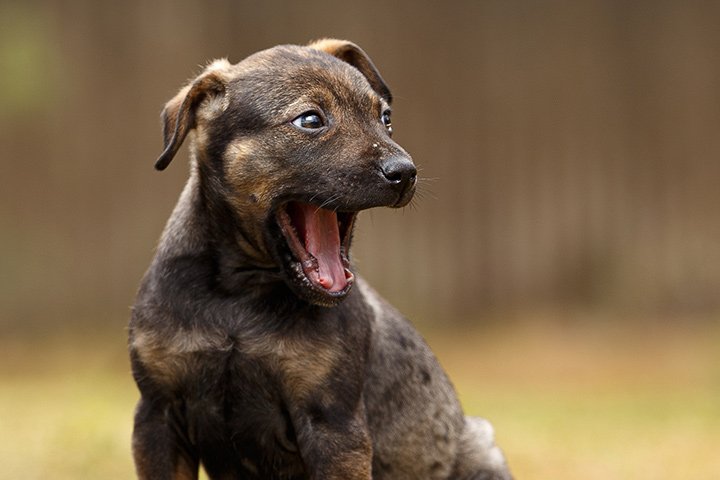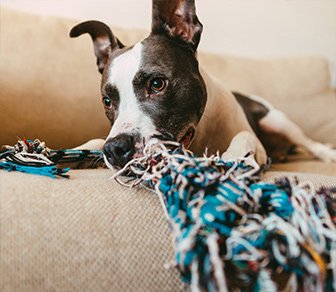Puppies development
Puppy
Development
Both physical and mental development of the puppies is a dynamic process. Proper training and teaching methods will strengthen the bond between you and will give your puppy a sense of stability. Teaching your puppy from the earliest days yields the best results, as your dog can quickly pick up basic commands, learn how to stay clean around the house and how to behave around other pets and people.
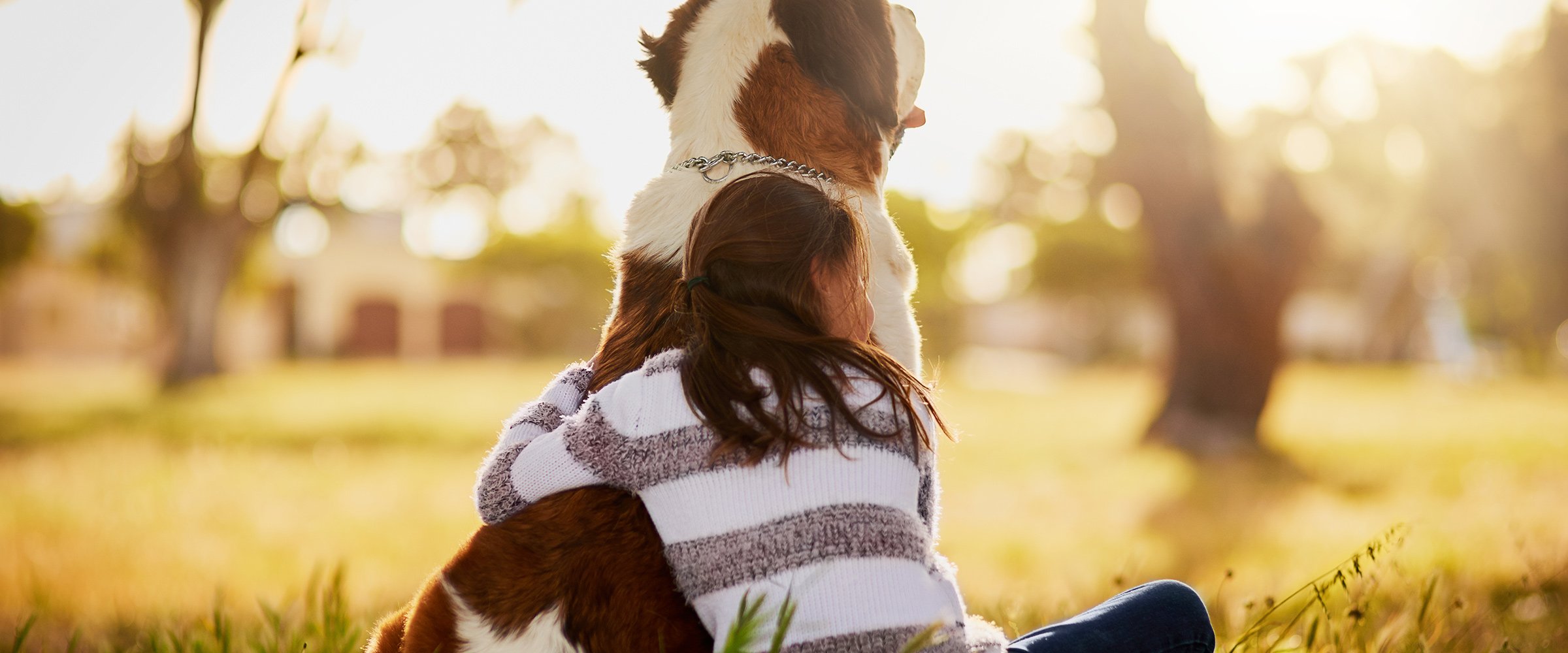
Keeping clean at home
Puppies do not yet have full control over their bladder. Usually, puppies need to go potty after they’ve woken up, eaten a meal or after an intense workout. Puppies will usually begin whining and will walk in circles, looking for the best place to go potty. Once you spot such signals, immediately take your puppy to a prepared spot. If your puppy will pee in a designated spot, praise him for doing so and offer a treat as a reward. Once you master this with your puppy it’s time to potty train your dog outside. Prepare yourself for frequent walks outside, but with time your puppy will learn to wait for a scheduled walk. Remember to always praise and reward your puppy if he goes potty outside. Puppies usually learn to stay clean around the house sometime between their 4th and 6th month.
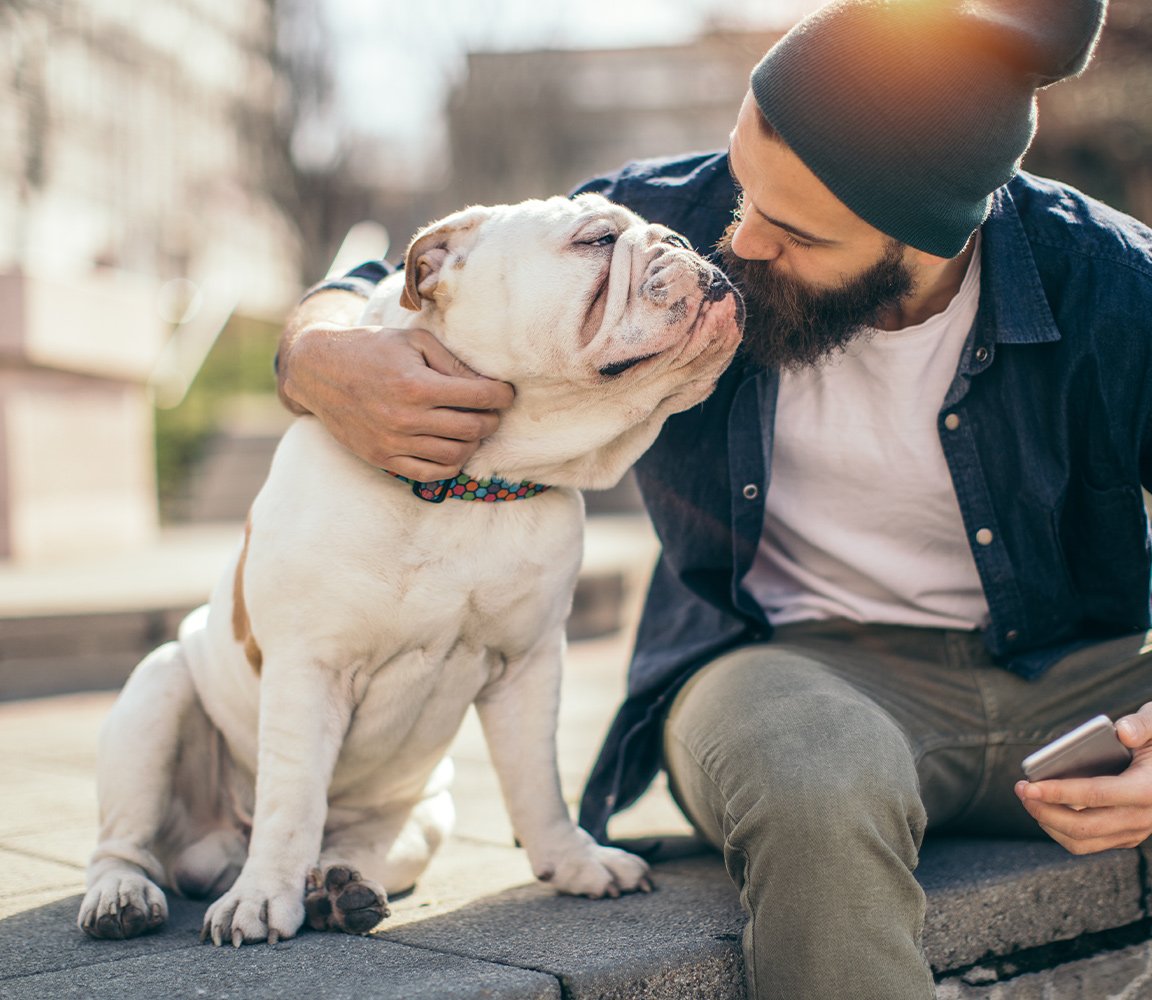
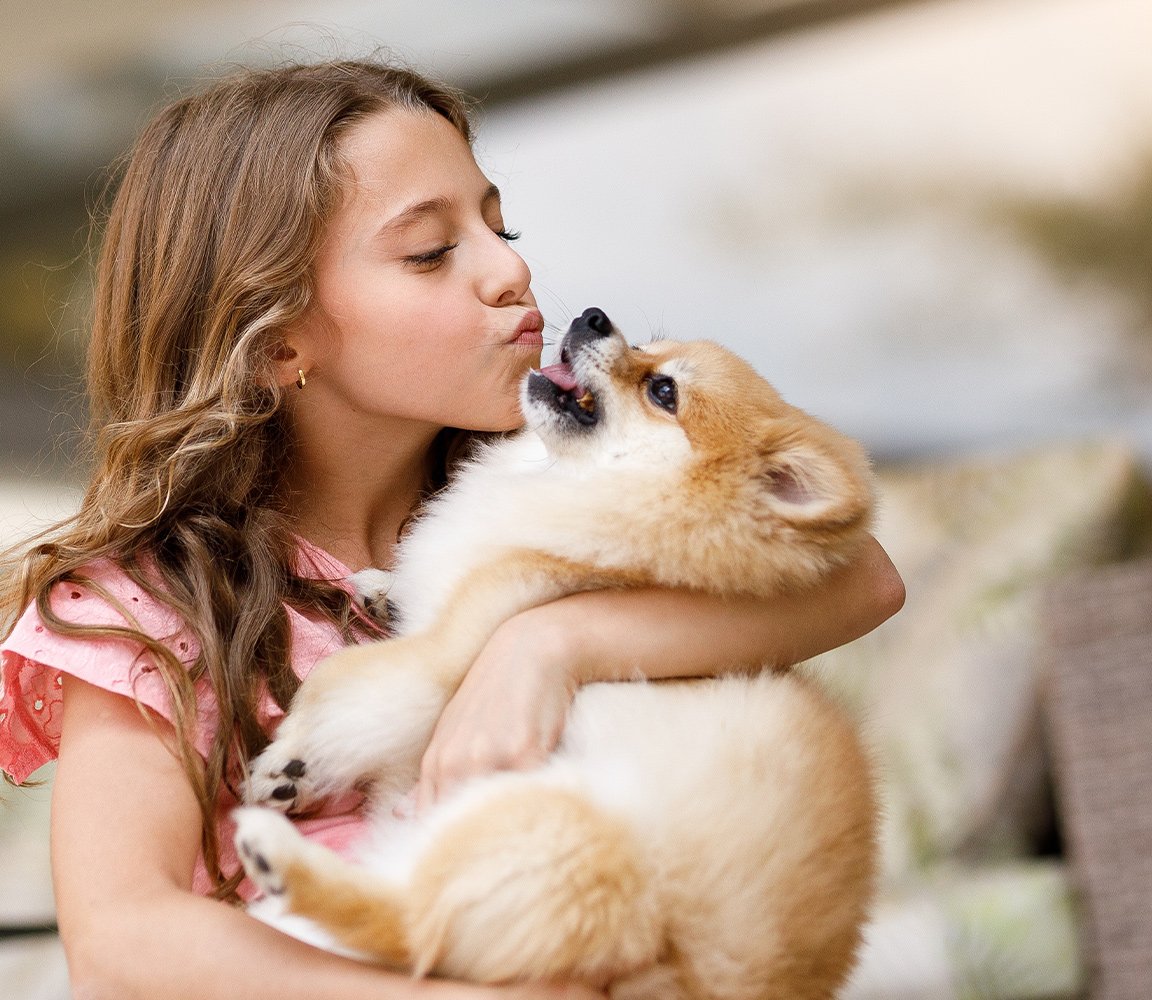
Understanding the dog’s language
The basic communication for your puppy is most definitely his body language. To show emotions dogs use almost the entirety of their bodies but focus mostly on their ears and tail. By observing your puppy’s behaviour you can quickly pick up on what he does when he’s happy, and how he behaves if something makes him uncomfortable. This way you’ll always be able to tell how your dog feels in a certain situation. At this time it’s not only you, who’s learning - your puppy is paying close attention to your every move, tone of your voice and your gestures. As time goes on, your puppy will understand when you want to take him for a walk and when his meal is coming. With teaching your puppy commands it’s crucial to link a certain voice prompt with a behaviour or a unique gesture, which will be easier for your dog to understand and remember.
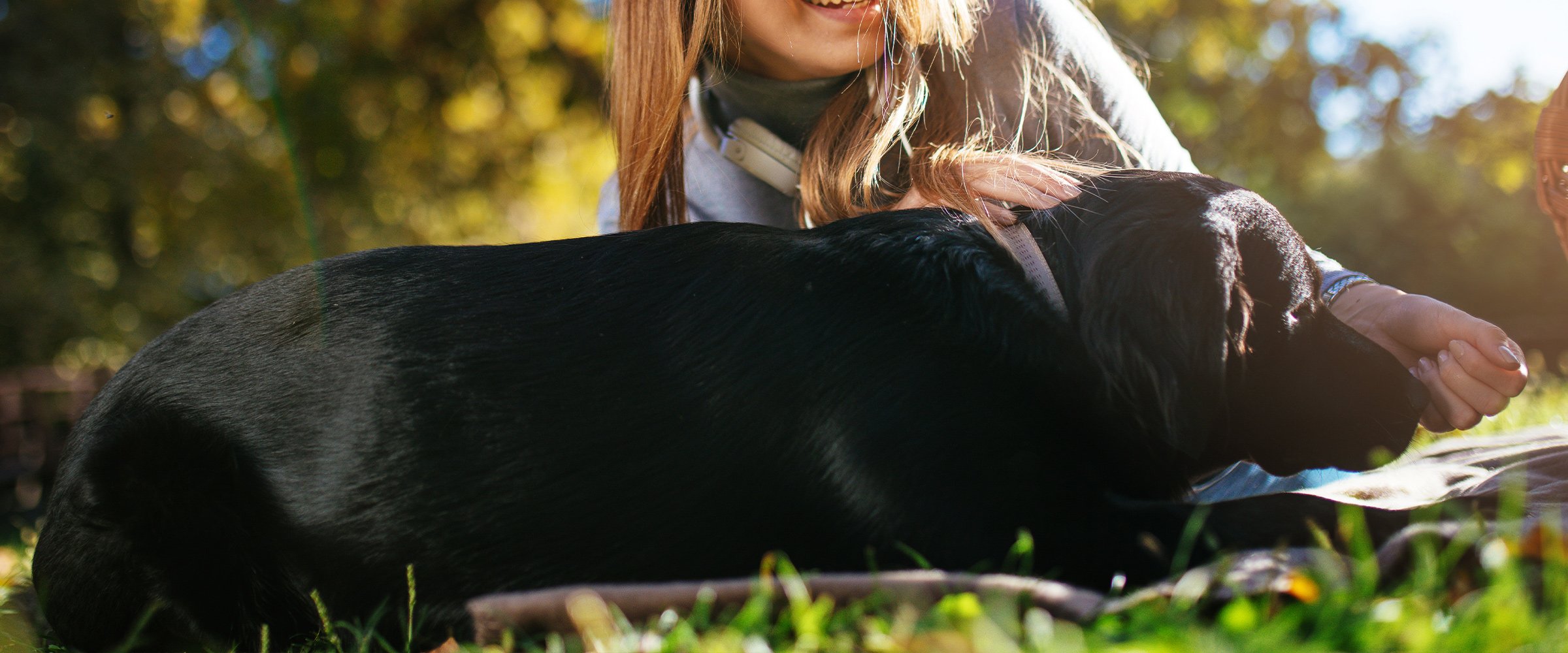
Puppy alone at home
Dogs love to feel like they are a part of the pack, as they are by nature social creatures. They like to hang around those, who they trust and they particularly enjoy when all the care and attention is focused on them. After puppies are taken from their mother and siblings they see their caretakers as their new family. Although your puppy would love to spend every waking moment in your company, you have to teach your pup to stay at home, whenever you have to leave. You’ll not always be able to take your dog with you, so begin with short absences and don’t go too far - you can just leave the room your puppy is in. Don’t make a huge scene, don’t say goodbye, just leave. Try to gradually extend the period of time, you’re not with your puppy, to get him fully comfortable to stay alone for the time when you’ll have to go to work or buy some groceries.
Bear in mind, some dog breeds do not enjoy being left alone for extended periods of time. With some breeds, frequent absences may result in your dog developing separation anxiety.
















